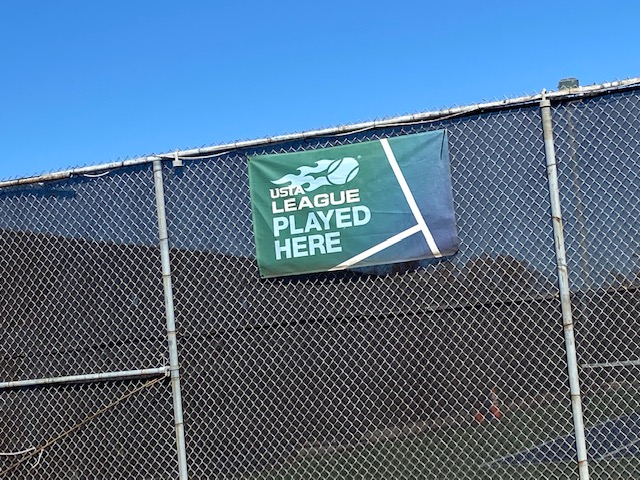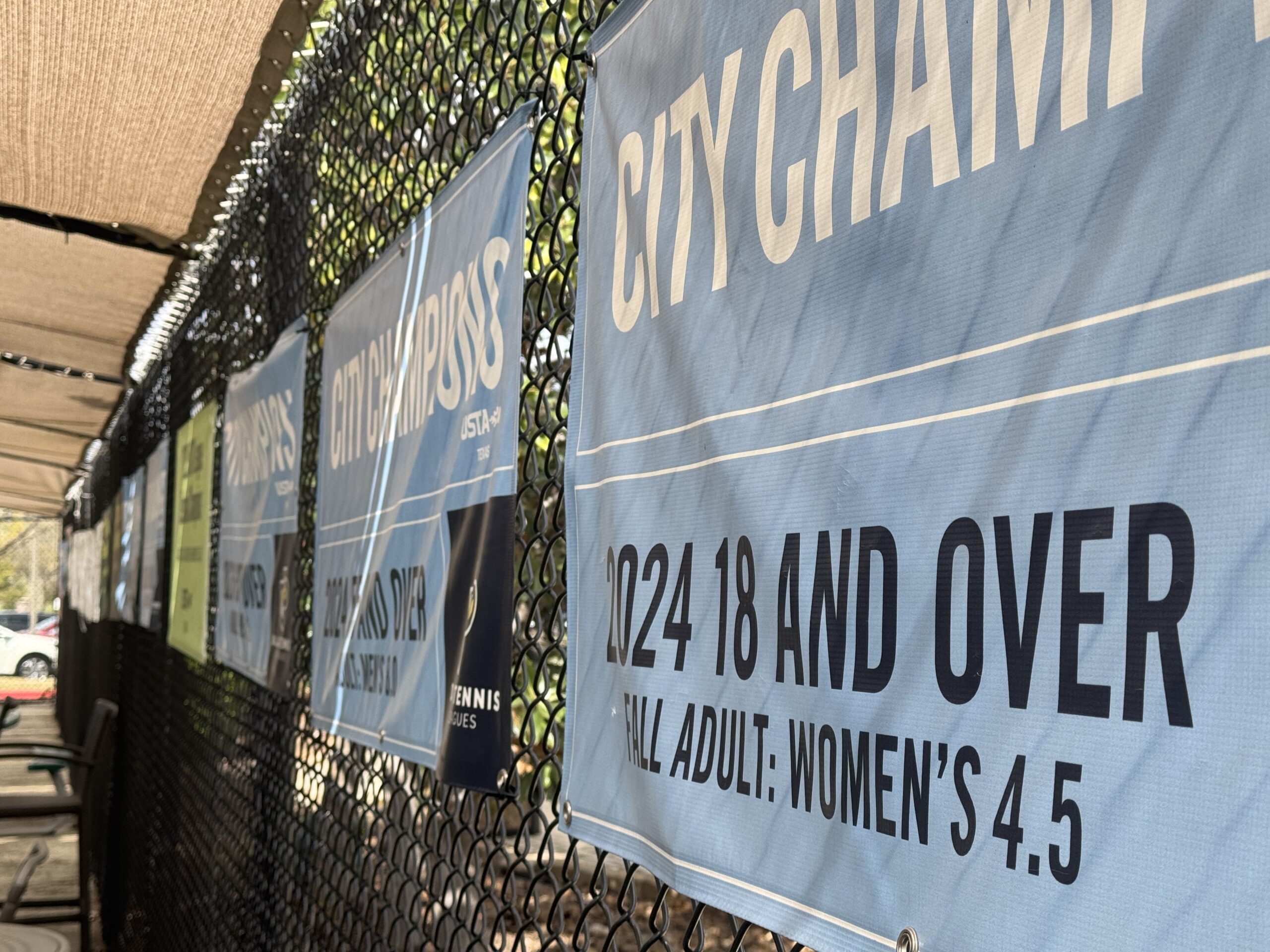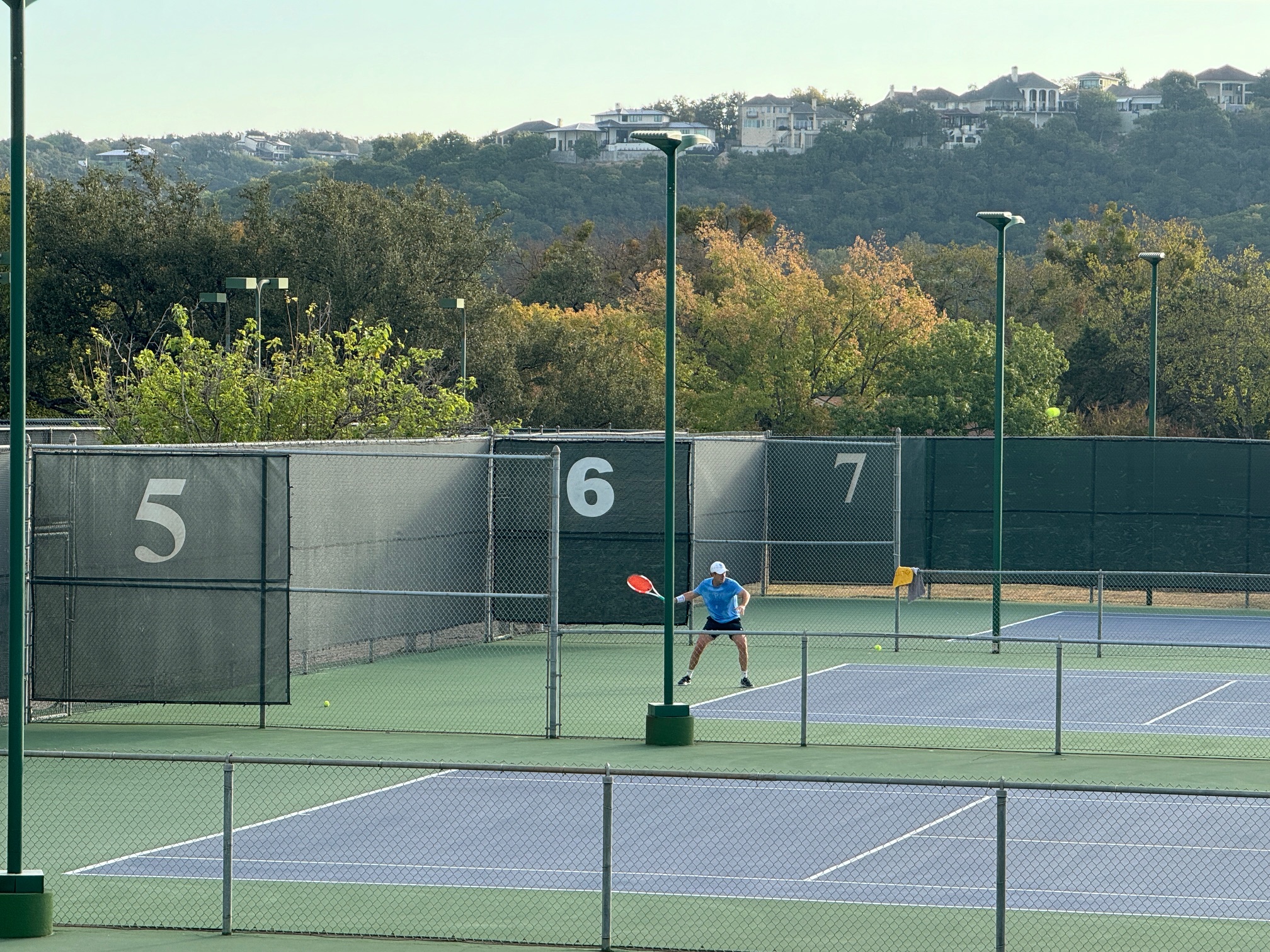Among the many best practices in evidence at the Level 1 Senior National Women’s Clay Court Championships is the use of Court Monitors for some of the older divisions. In that setting, a volunteer is sent to the court to assist players with keeping score and any other potential on-court issues. For example, it can be difficult to hear each other from opposite ends of the court. I am told that serving as a Court Monitor is an easy and rewarding way to give back to the tennis ecosystem.
The final “new” rule in the 2024 USTA Friend at Court stipulates that Court Monitors must be Safe Play compliant. That is a significant new requirement that will force tournaments into more advanced planning and vetting of people who serve in that capacity. The new wording is highlighted in blue in the excerpt below.
Court Monitors are not USTA-certified officials. Under the guidance of the Referee, USTA-sanctioned tournaments are authorized to use Court Monitors. Court Monitors assume limited duties and responsibilities to ensure fair and sportsmanlike play in conformity with the USTA regulations, The Code, and the Rules of Tennis. All persons serving in the role of Court Monitor must comply with the requirements of Safe Play, including clearing USTA background screening and successfully completing Safe Play education (see usta.com/safeplay for Safe Play requirements).
2024 USTA Friend at Court, USTA Regulation VII.F
This is the perfect opportunity to take a quick look at the Safe Play initiative within the USTA.
Safe Play is a safety program that protects tennis players from potential abuse. Coaches and administrators involved with the organization are required to complete periodic training to pass a background screening. Safe Play also provides a framework of reporting tools and policies defining appropriate tennis conduct. The USTA has partnered with the U.S. Center for SafeSport and the United States Olympic & Paralympic Committee for resources and independent administrative support for the program.
While the USTA is clearly committed to promoting safe and respectful environments for athletes, the organization has been the target of recent lawsuits involving acts and behavior that the Safe Play program is attempting to prevent. Hopefully, broad Safe Play certification requirements will protect both players and the organization from similar future issues.
I have first-hand experience with the Safe Play program as I participate in the annual training and am subject to the screening requirements. Each year it is a stark reminder that terrible things can happen in an athletic setting. It is good that the USTA is taking proactive steps to protect its athletes and the organization.
- Friend at Court: The Handbook of Tennis Rules and Regulations, USTA, 2024
- Safe Play, USTA Informational Page, last viewed March 22, 2024.



